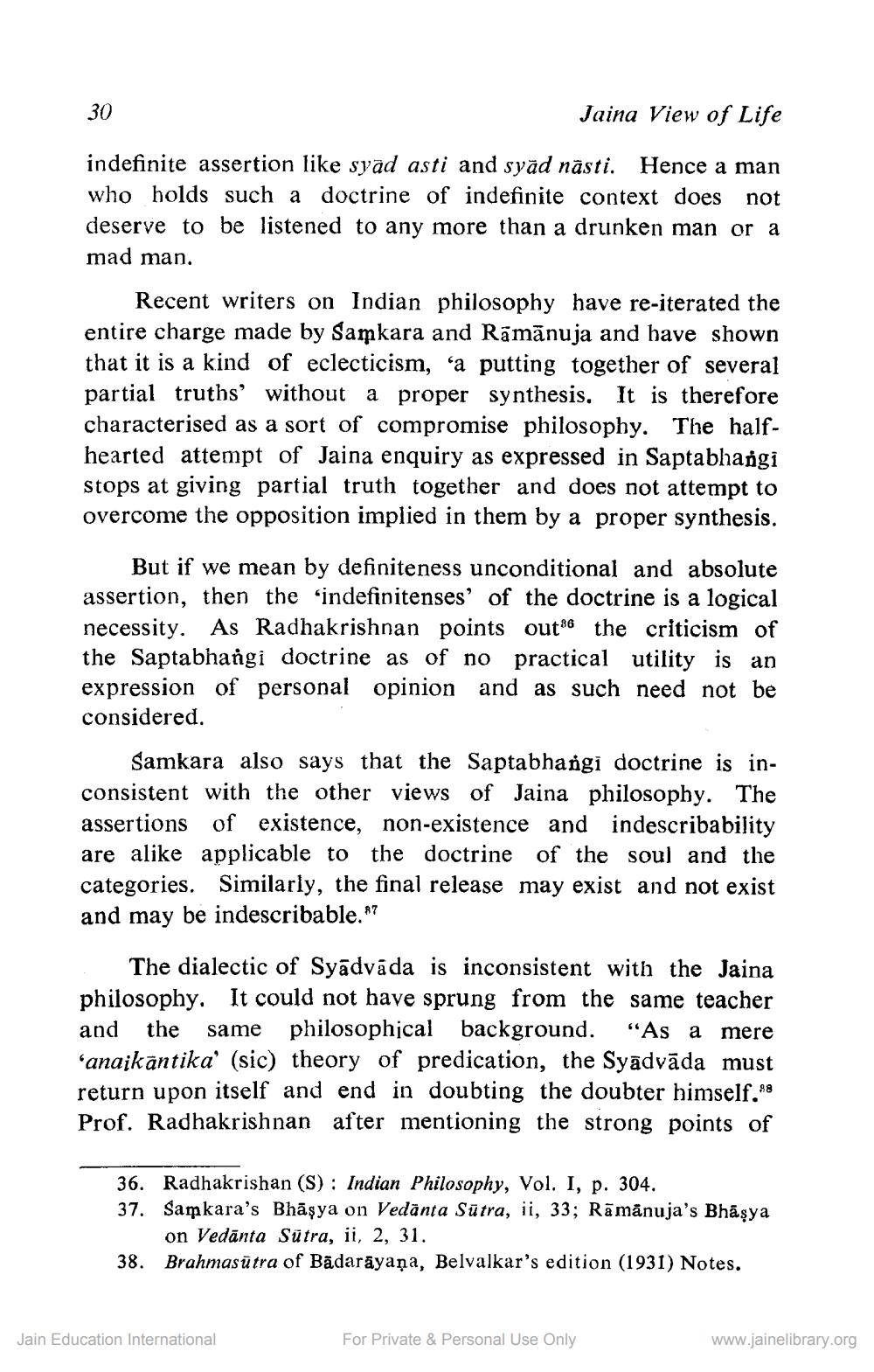________________
Jaina View of Life
indefinite assertion like syad asti and syad nästi. Hence a man who holds such a doctrine of indefinite context does not deserve to be listened to any more than a drunken man or a mad man.
30
Recent writers on Indian philosophy have re-iterated the entire charge made by Samkara and Rāmānuja and have shown that it is a kind of eclecticism, "a putting together of several partial truths' without a proper synthesis. It is therefore characterised as a sort of compromise philosophy. The halfhearted attempt of Jaina enquiry as expressed in Saptabhangi stops at giving partial truth together and does not attempt to overcome the opposition implied in them by a proper synthesis.
But if we mean by definiteness unconditional and absolute assertion, then the 'indefinitenses' of the doctrine is a logical necessity. As Radhakrishnan points out the criticism of the Saptabhangi doctrine as of no practical utility is an expression of personal opinion and as such need not be considered.
Samkara also says that the Saptabhangi doctrine is inconsistent with the other views of Jaina philosophy. The assertions of existence, non-existence and indescribability are alike applicable to the doctrine of the soul and the categories. Similarly, the final release may exist and not exist and may be indescribable.7
The dialectic of Syādvāda is inconsistent with the Jaina philosophy. It could not have sprung from the same teacher and the same philosophical background. "As a mere 'anaikantika' (sic) theory of predication, the Syadvāda must return upon itself and end in doubting the doubter himself." Prof. Radhakrishnan after mentioning the strong points of
36. Radhakrishan (S): Indian Philosophy, Vol. I, p. 304. 37. Samkara's Bhasya on Vedanta Sutra, ii, 33; Ramanuja's Bhāṣya on Vedanta Sutra, ii, 2, 31.
Brahmasutra of Badarāyaṇa, Belvalkar's edition (1931) Notes.
38.
Jain Education International
For Private & Personal Use Only
www.jainelibrary.org




